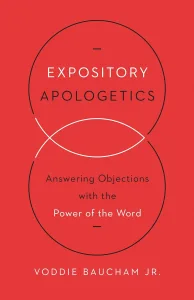The Assertion
The Analysis
- Hebrew,
- Arabic,
- Aramaic,
- Assyrian,
- Amorite,
- Ammonite,
- Edomite,
- Moabite, etc.
His mouth is most sweet, and he is altogether desirable. This is my beloved and this is my friend, O daughters of Jerusalem. (SoS 5:16)
In describing her love, the bride says his mouth is mam’takkim, “most sweet.” Then, in a poetic form, she says he is machamaddim, “altogether desirable.” Note the parallel, mam’takkim and machamaddim. The second term is from chamad, which means “desire, desirable thing,” “precious object,” and “what is pleasing to the eyes.” It is used thirteen times in the Hebrew Scriptures. Here, in the plural, it is used intensively, hence, “most desirable,” “most pleasing” is being used descriptively of the husband.What does any of this have to do with Muhammad? Well, logically, linguistically, and historically, nothing at all. But many Muslims believe that here, directly, is his name in the Bible. By ignoring the problems inherent in moving from one language to another, even within the same language family (Hebrew and Arabic are Semitic languages but have differences in grammar and syntactical structures), Muslims have moved from machamaddim to machamad (singular) to muhammad, finally concluding that here, in the original language, we find Muhammad!It is hard to take such argumentation seriously, but somehow many do. [1]
Conclusion
While the triliteral roots are the same, those familiar with Semitic languages know that connection on the root level does not guarantee connection on the level of meaning. Contextual and grammatical usage is what determines any word’s meaning, and the usage of the root in the poetic form found in Song of Solomon is far removed from anything even slightly relevant to the Arabic name Muhammad. [2]
Apologetics is for everyone.
The Bible is clear that all believers are called to defend their faith. However, if apologetics is the formal process that we have come to expect, this sounds like an impossible task. But what if apologetics could be part of natural, normal conversation―both from the pulpit and in everyday life?
Aimed at preparing you to clearly and confidently defend your faith, Expository Apologetics sets forth an approach to apologetics that is rooted in Scripture and eminently accessible. Filled with real-world examples and practical advice, this book will equip you with the tools you need to think biblically and converse persuasively―offering unbelievers “a reason for the hope that is in you.”

Logos Bible Software
The Logos Bible Study app is a powerful Bible study and sermon prep platform. It allows you to study Scripture, commentaries, devotionals, Bible dictionaries, and more from your computer, tablet, or phone. If you want to know the Creator of the Universe intimately, you want this app.

Elevated Faith
Are you looking for apparel or swag? We picked Elevated Faith because of the diversity of their offerings. They offer some great ideas for gifts for others and treats for yourself.












